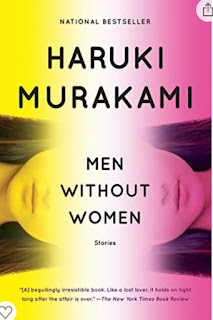American Dirt by Jeanine Cummins begins with great promise. The opening sequence involves the brutal murder of several members of a large family by a Mexican drug cartel and is told through the eyes of a young boy who witnesses the terror hidden inside a bathroom shower stall. The reader is literally thrust into the story's plot in the most heartbreaking and gruesome way. I was fascinated and sickened by the visceral details describing the massacre, and I immediately felt a connection to the main character, eight-year-old Luca.
Turns out the only survivors of the hit are Luca and his mother Lydia who owns a bookstore in Alcapulco. Cousins, aunts and uncles, and grandparents are slain at the family barbecue to retaliate for a tell-all expose written by Lydia's husband, a journalist. The remainder of the book chronicles the harrowing journey through the desert of Mexico as Lydia and Luca attempt to escape to
el norte.
Somehow halfway through the book, I became distracted. The horrific danger at every turn became heavy-handed and bits written from the perspectives of newly introduced characters on the journey confused me. The danger is certainly understandable, but I felt the balance between the cruel events taking place and the characters' reflections became disjointed as well. I continued reading because I was completely invested in the story's resolution!
Halfway through reading the book, I was also reminded about the controversy surrounding the author's non-Mexican heritage that played out when it was first published in early 2020. That didn't end up being an issue for me because I think the author did a great job immersing herself into the plight of her characters. Isn't that the job of fiction writers, to research and gather information to help them tell the stories of made-up characters? Cummins never claimed this to be the true story of a migrant mother and son fleeing to America, nor did she claim it to be
her story!
It is a powerful and relevant story, however, one that raises awareness of fairness, decency, and humanity during a time when it seems Americans are being discouraged from displaying any of those qualities toward our southern neighbors.
This excerpt from Chapter 30 demonstrates the determination and resolve that moved the characters forward toward sanctuary in America. “Lydia expected there would be a moment when these notions would flood through her, all at once, like a small death. A portal. She’d hoped, like one of those desert rattlesnakes, to shed the skin of her anguish and leave it behind her in the Mexican dirt. But the moment of the crossing has already passed, and she didn’t even realize it had happened. She never looked back, never committed any small act of ceremony to help launch her into the new life on the other side. Nothing can be undone. Adelante.”









